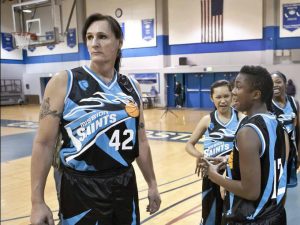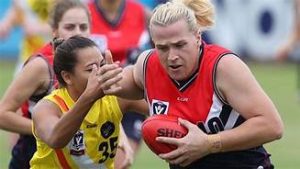I have often addressed the insanity of transgenderism and its impact on millennia of settled science, human biology, and women’s athletics. Now, the National Association of Scholars, an organization I belong to as a former dean and professor (now emeritus), has boldly issued a statement and rationale against the cult of transgenderism that is permeating every corner of our nation–from women’s bathrooms and changing rooms to K-12 schools and universities. Sadly, many in Congress, the news media, several state governments, and our doddering president have bought into this preposterous and dangerous deception, and as a result, gender confusion reigns when it shouldn’t. Thank God someone in academia has come to their senses.
In addition to the National Association of Scholars, I belong to the Society of Professional Journalists. Unfortunately, I am ashamed to say that that organization has bought into the transgenderism and gender dysphoria nonsense and the inane use of meaningless pronouns that they have spawned.
As the NAS said in the preamble to its well-reasoned and scientifically valid statement:
“The National Association of Scholars is striving, perhaps against the temper of the times, to expand the “Overton window” (AKA “window of discourse”) of matters that can be debated with reason, evidence, and goodwill in American higher education. In recent years, the ideology of transgenderism has been striving to slam that window shut. Gender ideology is fundamentally a means of power and control. Gender spectrum ideology springs from gender ideology and is similarly totalitarian in nature and motivation. We oppose this. Here is why:
Against Transgenderism
The human species has two sexes, and they are sexually dimorphic. That is, they differ from one another in characteristic physical ways, large and small, usually outwardly visible but almost always present in chromosomes and internal anatomy. Asserting these basic facts of human biology ought not to be controversial, but a strange doctrine has arisen lately that asserts that some humans are best understood as “transgender” and that society has an obligation to recognize this condition, respect it, and make numerous adjustments to accommodate it.
That entails regarding that person as if he or she were of the opposite sex. Gender, however, is best understood as variation in temperament, specifically along the Big Five personality traits. There are masculine women and feminine men. Despite being “transgender,” those masculine women are still women, and feminine men are still men.
The ideology of transgenderism is so pronounced and so widespread that there is no need to describe it in detail. What occasions a statement from the National Association of Scholars on it are several of the ways that that ideology has disrupted American education at all levels. These include:
- Vitriolic attacks on faculty members and medical professionals who dissent from the transgender orthodoxy
- Insisting that faculty members and students divulge their “preferred pronouns” and that others address and refer to people by these pronouns.
- The readiness of competitive sports to permit individuals of one sex to compete in single-sex contests of the opposite sex.

- The designation of gender-inclusive restrooms on campus. Yale, for example, has 332 such designated restrooms created at the reported cost of $8.3 million.
- The insistence that archaeologists and forensic anthropologists cease classifying human skeletal remains as male or female since we do not know the “gender identification” of the individuals.
- Distortion of the medical school curriculum and consequences for healthcare.
A certain percentage of infants are born with genital anomalies. These infants may be classified as “intersex,” though the term is misleading since most are either male or female at a more fundamental level. Estimates of the number of children born like this have varied, but the currently accepted figure is a very low percentage of live births.
These individuals, in many cases, grow up in conformance with their actual sex. Some intersex individuals have chromosomal anomalies, such as XXY sex chromosomes. This condition—Klinefelter syndrome—affects only males and occurs between 1 in 500 and 1 in a thousand boys. The extra female chromosome in these individuals results in lower testosterone, reduced muscle mass, and enlarged breast tissue, among other symptoms.
When activists today speak of transgenderism, however, they mean far more than the individuals whose unusual physiology mixes some male and female traits. Rather, they refer to the “lived experience” of individuals who self-identify as the opposite of their own sex. Such self-identification in no way changes the sex of such individuals, though it may have dramatic consequences in their familial and social lives (see the Substack blog Parents with Inconvenient Truths about Trans [PITT] for many poignant examples). In cases where individuals subject themselves to hormone treatments and/or surgery to enhance their resemblance to members of the opposite sex, the fundamental biological reality is certainly disturbed, but at a cellular level, the individual’s sex is likewise unchanged. Simply put, a “transgender woman” is a man pretending to be a woman.

“Gender dysphoria”—an individual’s false belief that he or she is not accurately described by his or her actual sex—was not long ago recognized as a mental health condition. (Diagnostic and Statistical Manual, Third Edition). The field of clinical psychology, having proved its eagerness to endorse a great many political enthusiasms, has turned away from that classification, but the truth remains that an eagerness to be seen as a member of the opposite sex is best understood as a neurosis. Of course, a neurosis that is fostered and encouraged by others—a peer contagion—can become something worse: a condition in which the sufferer becomes delusional and loses touch with reality and may even become “contagious” as well.
Gender dysphoria is one of several forms of body dysphoria. Another is anorexia nervosa, in which the victim starves herself in the false belief that she is fat. Even this form of delusion has attracted defenders who argue that the views of those who suffer from anorexia should be respected, but fortunately, this eccentric claim has been dismissed as nonsensical by the medical establishment and the public at large. Anorexia nervosa leads to disfigurement and death. Gender dysphoria can likewise lead to severe medical consequences.
The folly in transgenderism is not just among those who suffer gender dysphoria but as much or more among those who celebrate and advance the ideology, going so far as to groom young children to pursue “transgender identities” and even gender “transitions.” This is an ideology that undermines parental responsibility for children, though parents, too, are sometimes complicit in efforts to foist transgender identities on children. Teachers are frequent contributors to the transgendering of young children, and peer influence appears to play a significant part, especially among teenage girls.
The spectrum of personal and social ills stemming from the transgender ideology is broad and deep, but the National Association of Scholars does not seek to offer a comprehensive critique of the phenomenon. Rather, our focus is on the damages transgenderism inflicts on education. In addition to those already mentioned, we add:
- The displacement of the biological binary of male and female by a “socially constructed” spectrum of gender identities. This displacement undermines not just the teaching of biology but, perhaps more significantly, the humanities and the social sciences, in which a fundamental difference is effaced in favor of a false supposition.
- The aggrandizing of subjective feelings in contexts where students and scholars should prioritize the pursuit of facts. Skeletal remains, at least in reasonable amounts, can be “sexed.” It does not matter what forms of sexual attraction or delusional self-image were experienced by the person whose bones remain. Documenting the biological sex of skeletal remains reflects biological reality, not lived experience.
- The blinding of students to the received wisdom of our own and other civilizations that present the hard-won insights of many generations on the differences between the sexes. Among the legacies of this wisdom is the defense of women against stronger and more assertive males, exemplified in the gender confusion permeating women’s athletics.

- The self-contradiction of an ideology that denies the reality of sexual differences while at the same time enthusiastically supporting the “transitioning” from one sex to another.
- The imposition of “compelled speech” in the form of “preferred pronouns” and other forms of forced consent to the fictitious “gender identity” of transgendered persons.
- The further elevation of victimhood as a form of status and social competition to be a victim including of so-called gender discrimination, all of which is at odds with real accomplishment and character.
- The tendency to see education not as an attempt to study or understand the world and thereby acquire wisdom and knowledge but instead as a way to change the world, and those in it, via social and political activism.
To oppose the transgender ideology these days is to risk various forms of ostracism, such as exclusion from some social media sites, verbal attacks by student activists, and punishment from institutional authorities, already eager to police ideological transgressions.
NAS is relatively immune to these forms of ostracism—though perhaps not entirely. We announce our opposition to transgender ideology first to open wider the “Overton window” of views that can be expressed in American society and second to support the many faculty members and students who endure this ideological abuse despite their objections to it.
They see no recourse. But there is recourse. Standing up for the truth is sometimes not easy, but it becomes easier when you know that others are with you.
Amen to that.
Are we such a nation of sheep that a handful of devious and fatuous Judas goats can lead us all to the knacker’s yard for the irrational and foolish? Right now, it sure looks that way.
[The National Association of Scholars is a 501(c)(3) non-profit organization that seeks to reform higher education. We uphold the standards of a liberal arts education that fosters intellectual freedom, searches for the truth, and promotes virtuous citizenship. To accomplish this mission, we defend the academic freedom of faculty members, students, and others through individual advocacy; investigate issues affecting academic freedom, the integrity, purpose, and neutrality of the university and publish our findings as in-depth reports; educate the public about policies and legislation that would preserve the liberal arts and protect academic freedom. These create three pillars from which our work stands: individual advocacy, research reports, and public advocacy.]
[If you enjoyed this post, please consider subscribing to ForeignCorrespondent and tell your friends to subscribe. IT’S FREE! WHAT A DEAL! If you’ve received this from a friend and would like to be added to our distribution list for future blog posts, please enter your email address in the sign up for notifications box on the right side of this post or at: https://ronaldyatesbooks.com/category/foreign-correspondent You can also find my commentaries on the American Free News Network at https://afnn.us. And please feel free to comment. WE LOVE COMMENTS!]


If delusional people want to delude themselves, I’ll humor them; however, my tolerance ends when they insist I have to alter my speech to accommodate their pronoun confusion. I will resist peer contagion. My pronouns are I, me, and mine.
I’m with you 100% J.C.